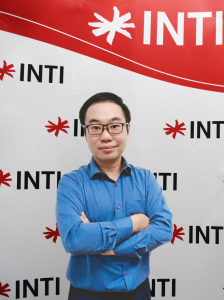The discarded shells of green mussels and crabs have recently been discovered to harbour remarkable potential. Researchers from INTI International University and the University of Semarang, Indonesia, teamed up to investigate these waste materials and found that they could be repurposed into valuable resources that benefit humans and the environment.
Discarded fish waste, comprising bits of flesh, skin, bones, entrails, shells, and liquid stick water, decompose quickly in warm conditions. If these residues are not appropriately managed, they can lead to strong odours and bacterial decomposition, triggering ecological and health complications when discarded in the sea.
Professor Dr Tezara Cionita, from the Faculty of Engineering and Quantity Surveying at INTI International University, emphasised the environmental significance of repurposing these shellfish into valuable resources that benefit humans and the environment. In a recent breakthrough with her co-author Professor Ts. Dr Wong Ling Shing, from the Faculty of Health and Life Sciences at INTI International University, along with a team of Indonesian researchers, presented their findings in a study titled “Synthesis and Characterization of Calcium Carbonate Obtained from Green Mussel and Crab Shells as a Biomaterial Candidate.”

By collecting green mussels and crab shells from Central Java, Indonesia, and transforming them into biomedical materials, the team discovered significant potential across various medical applications, including bone graft substitutes, dental materials, and drug delivery systems.
“Shellfish are widely found in Central Java, Indonesia, valued not only for their rich protein and mineral content but also their low fat, cholesterol, and sodium levels. They possess excellent biocompatibility and osteoconductive properties, which uncovered the hidden potential of these discarded shells in medical advancement,” she said.
According to her, excellent biocompatibility is an essential prerequisite in the clinical application of biomaterials in orthopaedics.
“It signifies the role of biomaterial without triggering any detrimental effects on the biological system,” she said, adding that scientists are now particularly interested in calcium carbonate as they have enormous potential in medical discoveries.
Beyond the medical revolutionary, she stated that it is worth noting that many commercial calcium carbonates in the market contain heavy metals that are detrimental to human health. The team created a particular form of calcium carbonate, Precipitated Calcium Carbonate (PCC), extracted from these shellfish. Unlike commercial calcium carbonate, PCC is much safer for the environment and human well-being because it can control its size and structure, making it great for various medical applications. This process helps us make better medical materials and brings environmental benefits by using waste materials sustainably. The price of commercial calcium carbonate is slightly higher, while PPC is much safer for the environment and human well-being.
When asked how these shellfish were extracted and examined, she explained that a meticulous treatment was carried out.
“The process underwent a gentle drying process within an oven set at approximately 100 degrees Celsius for two hours. This ensured that the shells were thoroughly dried and primed for subsequent procedures. The dried shells were then meticulously crushed into a desired size before they went for a transformative process known as calcination after being exposed to 900 degrees Celsius for five hours in a special apparatus,” she said.
Meanwhile, in the pursuit of a greener future, Prof. Ts. Dr Wong Ling Shing, from the Faculty of Health and Life Sciences, stated that by repurposing discarded shellfish wastes into valuable materials, they tackle the issue of waste buildup and the pollution linked to it.

“This benefits the ecosystem and enhances the quality of life for communities near these waste sources. This means that government bodies play a pivotal role by initiating and supporting awareness campaigns about responsible waste management. By enforcing proper disposal methods and encouraging recycling, governments can significantly reduce the environmental impact of waste, creating a healthier environment for us all,” he concluded.